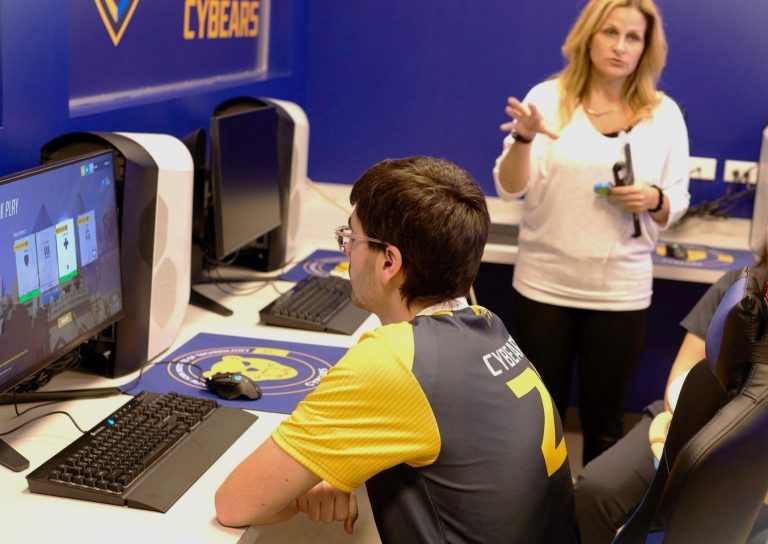
As competitive esports continues to grow in popularity, blood clots formed in the legs, or deep vein thromboses, are being increasingly reported in gamers, the majority of whom play between three and 10 hours per day.
In fact, given the number of continuous hours spent being sedentary, gamers have nearly double the risk of developing these blood clots, which can become life-threatening, especially if the clot travels to the lungs.
A new study from researchers at New York Institute of Technology’s Center for Esports Medicine analyzes whether compression sleeves worn below the knee or short walking breaks can enhance blood flow and reduce DVT risk in gamers.
The research, which was conducted on the Old Westbury campus and published on February 8 in the American Journal of Physiology—Heart and Circulatory Physiology, is the outcome of a collaboration with the global esports organization Fnatic.
Over the course of three visits, the researchers analyzed 10 healthy, college-aged gamers, all of whom were ranked esports players with more than 500 hours of playing time. In one visit, players engaged in two hours of uninterrupted, continuous gameplay with no interventions.
In a second visit, gameplay was interrupted halfway through, and players took part in a six-minute walking break at a comfortable pace. On a third visit, players wore a fitted compression sleeve below the knee while playing continuously for two hours.
Using Doppler ultrasound, the researchers took measurements of the players’ left popliteal artery, a primary vessel that delivers blood to the area near the knee and lower leg and is prone to blood clots.
The recordings, which were taken at 30, 60, 90, and 120 minutes, collected data on vessel diameter, blood flow velocity, and blood flow volume. After the experiments were completed, participants were then also asked to reflect on each intervention and how they felt it affected their gaming performance.
The findings showed that during the two hours spent playing without any intervention (no compression sleeve or walking break), players experienced a greater decrease in blood flow and blood velocity, with blood flow volume dropping 46 percent after two hours.
When the compression sleeve was used, blood flow decreased by 31 percent after two hours, offering moderate benefits over the control group. However, the six-minute walking break proved superior, with players experiencing a 20 percent decrease at the two-hour mark.
These findings build on the center’s 2021 research, which found that walking breaks can improve gamers’ processing speed and executive function.
The player survey responses revealed that more than 67 percent believed that the walking break had a positive impact on their gaming performance, whereas only 11% felt the compression garments positively impacted performance. I
nterestingly, more than 78 percent still agreed that they would consider wearing compression garments in the future.
While the research stands to benefit any gamer who plays continuously—professional, collegiate, or even recreationally—lead author Joanne Donoghue, professor and director of clinical research at New York Institute of Technology College of Osteopathic Medicine, notes that the findings could also improve health outcomes in any individual who sits for a prolonged period.
“Even though our study was conducted in gamers, any person who sits for a long time throughout the day, including office workers, could benefit from our findings and apply this knowledge to proactively reduce their risk of developing blood clots,” she says.
Donoghue also hopes her team’s findings will help establish the first health guidelines for collegiate esports players.
“As collegiate esports continues to grow, we’ve seen that coaches are desperate for information on how to make their players healthier. However, because esports is not yet NCAA-regulated, there are no available health regulations like those that exist for traditional sports, such as football. Hopefully, our research will inspire additional studies and conversations that eventually lead to these much-needed rules at the college level,” Donoghue said.






